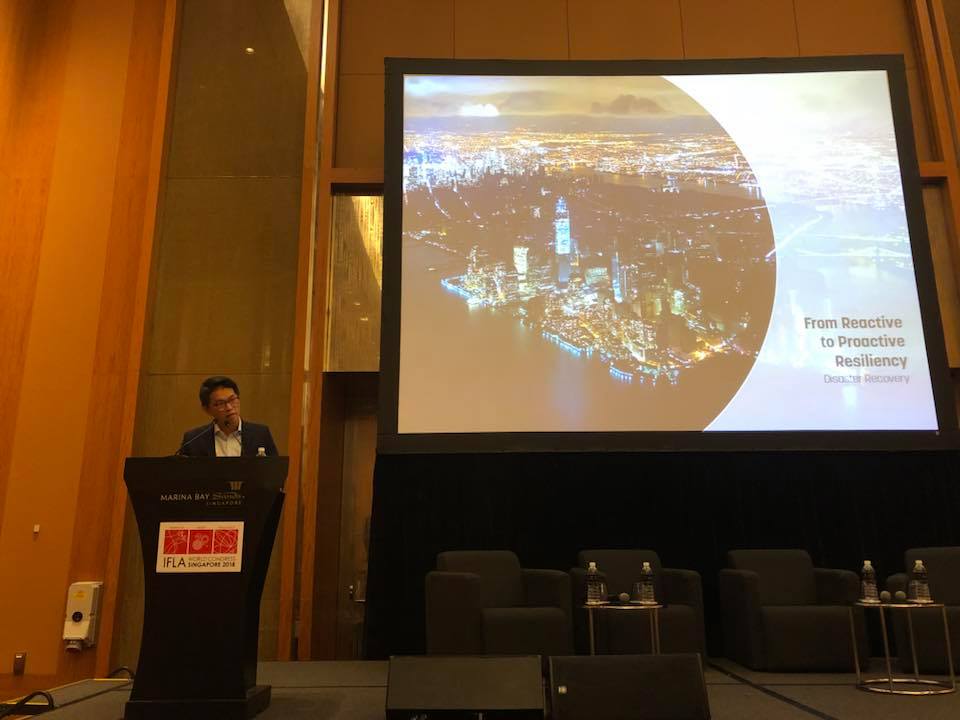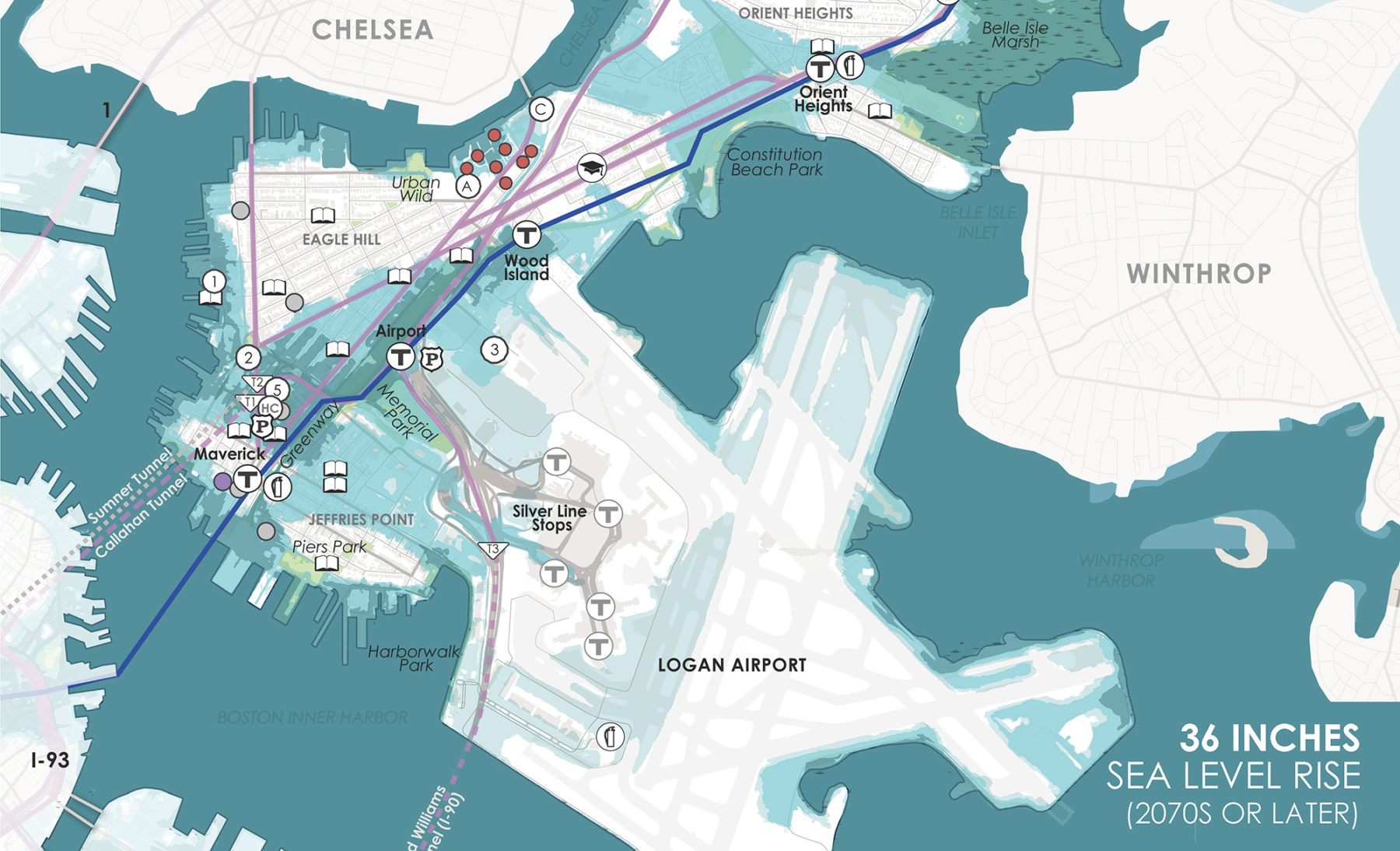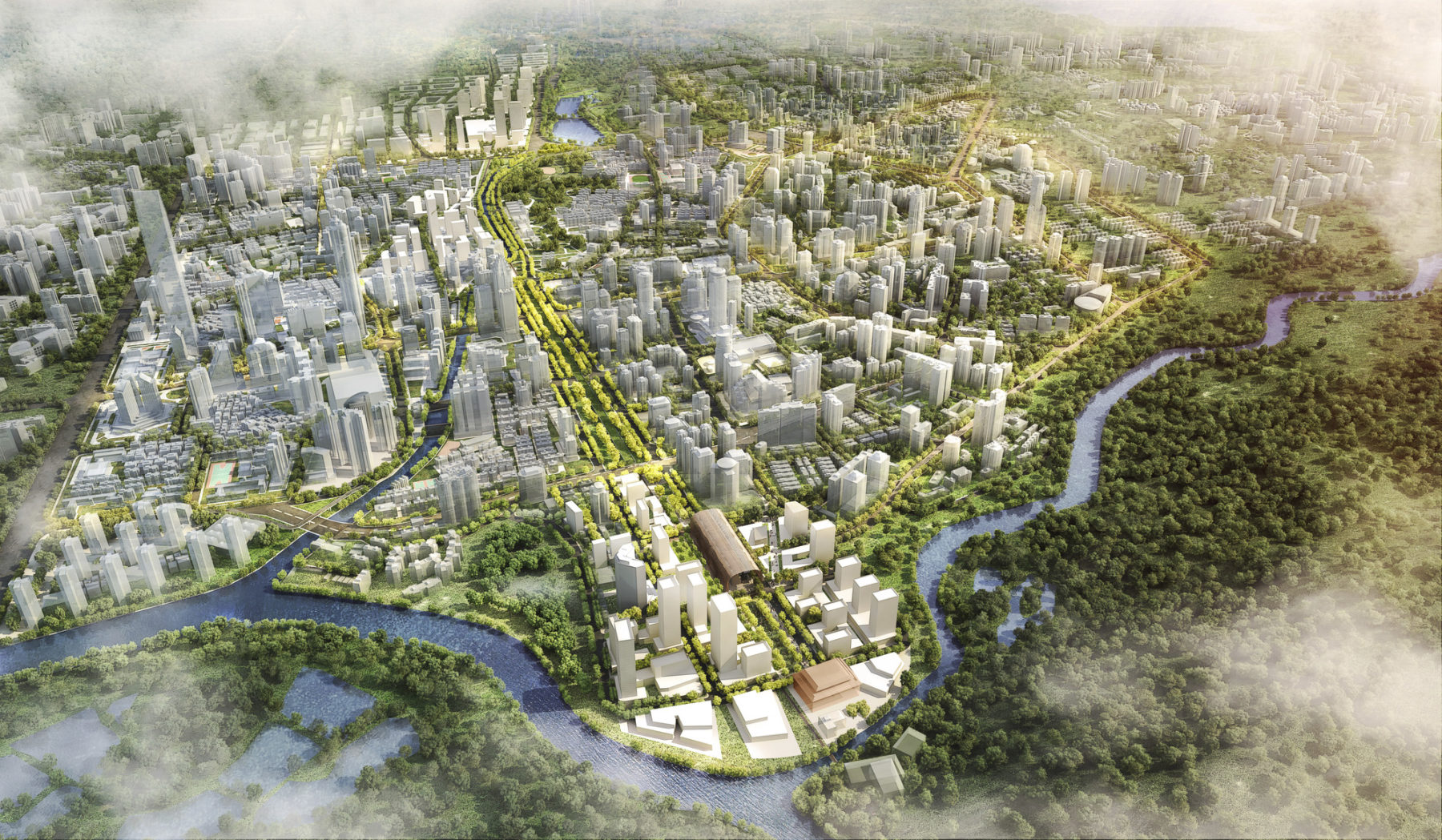Hsueh Presents at IFLA World Congress

 Sasaki
Sasaki

Last week, Sasaki senior associate Ming-Jen Hsueh, ASLA, accepted the 2018 AAPME Award for the Zhangjiabang Park on behalf of Sasaki and also presented at the IFLA World Congress 2018 in Singapore. Organized by the International Federation of Landscape Architects (IFLA), the conference showcases the contribution of landscape architecture to the development of innovative and sustainable environments, and connects industry leaders with prominent business executives, government officials, and academics.
Hsueh’s presentation “The Ripple Effect: Building the Future of Resiliency” explored new approaches that cities must take on to combat unprecedented challenges due to climate change and sea level rise. Hsueh focused on the concept of “urban resiliency,” which advocates for multi-disciplinary approaches to tackling climate change and sea level rise through leveraging complex networks of economic, ecological, and political forces currently at play in modern-day cities.
“Urban resiliency,” says Hsueh, “is a critical lens for adaptation and innovation, as none of the major issues of city development in modern days facing—nature, economy, society—exist in isolation of the others. Comprehensive solutions should be proactive and design-oriented, and such interconnected issues will benefit from a more inclusive dialogue; one that considers the communities made most vulnerable by weather events associated with climate change. A community’s connection to place is at the very heart of resilience, and how we communicate global issues with local communities in an accessible way will be the key to building urban resilience.”
In his session, Hsueh elaborated on several of Sasaki’s projects within Boston, such as Climate Ready Boston, a roadmap for creating a stronger, more resilient city. The Climate Ready Boston team identified strategies to mitigate future risks that may arise from rapid changes to our environment. Hsueh then discussed the measures that Boston as a city is taking to prepare for climate change challenges.

Hsueh also looked at fast-growing urbanized areas on the global stage, and highlighted Chinese cities, Shenzhen and Wuhan. In this section, Hsueh focused on projects that showcase the specific challenges that riverfront communities must face, such as Sasaki’s Buji River Corridor in Shenzhen. This project will transform the north-south corridor along the Buji River and Guangshen Railway into an “artery” that connects the core hubs of the city with one another. Hsueh also discussed the Wuhan Yangtze River Axis, demonstrating how Wuhan is creating a plan for a city along the Yangtze River that integrates urban resilience strategies.

Photo courtesy of Singapore Institute of Landscape Architects
IFLA AAPME Awards 2018 – Resilience by Design is an inaugural award initiated by the IFLA Africa, Asia Pacific and Middle East (AAPME) regions. Organised by the IFLA Asia Pacific region and Co-Chaired by the three IFLA regional presidents, it is an international award for landscape design and planning recognition that is open to all IFLA regions and practitioners around the world for projects within the Africa, Asia Pacific and Middle East regions. The Award offers unlimited submissions and free registration to all. Learn more at www.iflaapr.org.